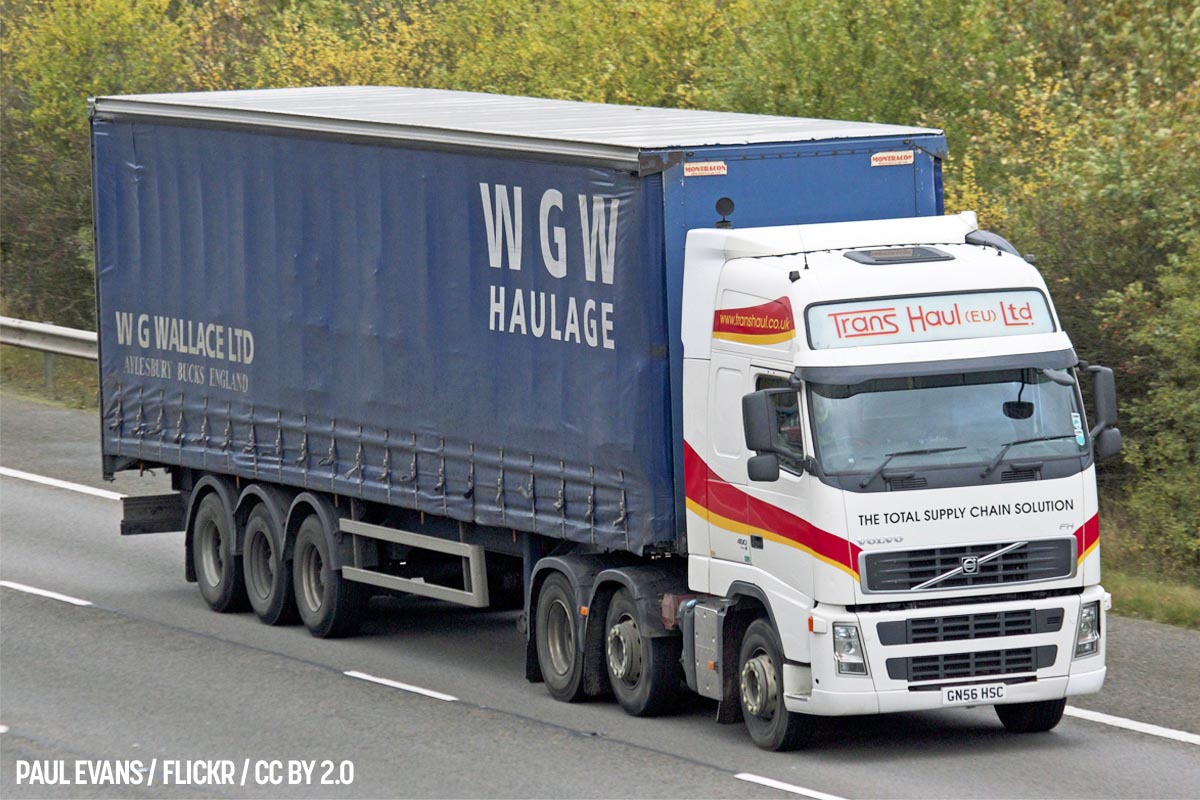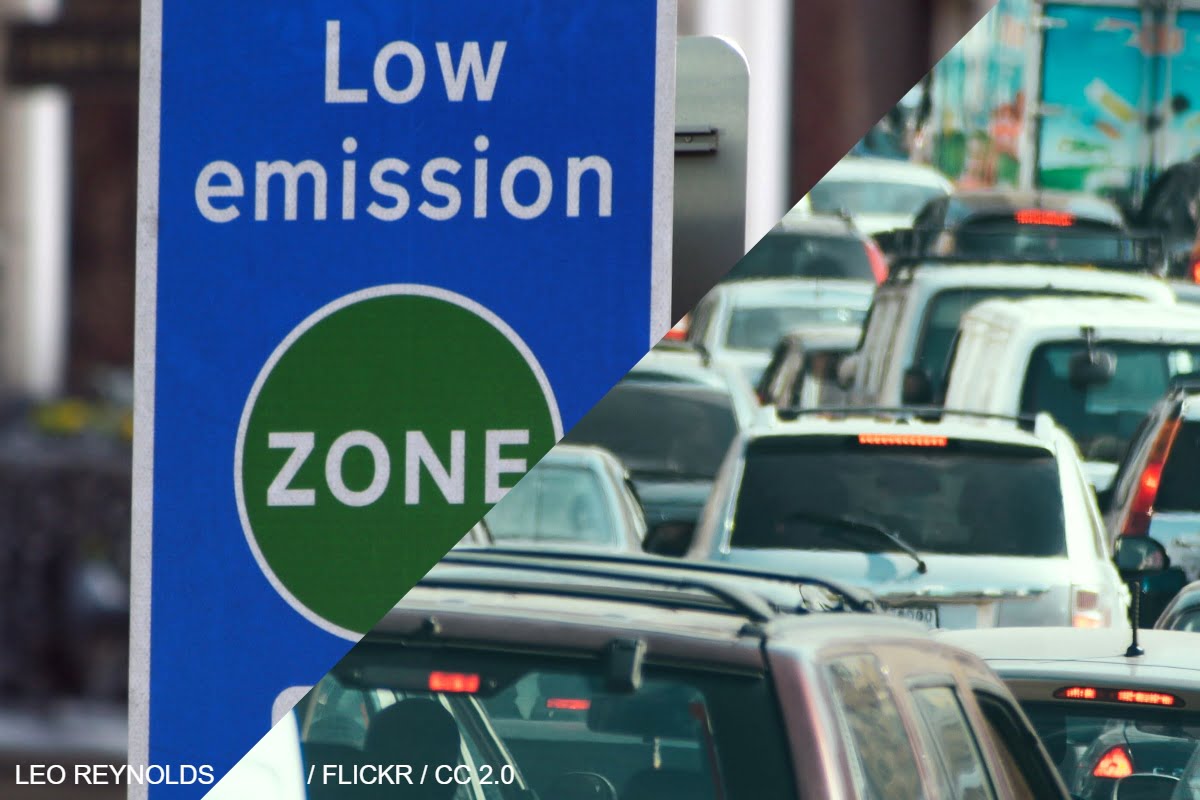The recent expansion of London’s Ultra Low Emissions Zone is yet another attempt to present workers with the bill for cleaning up the environment. Instead of greenwashed austerity, the labour movement must fight for bold socialist policies.
Following the expansion of London’s ‘Ultra Low Emissions Zone’ (‘ULEZ’), hundreds of thousands of Londoners are now faced with new charges and fines for simply driving their cars to work, the shops, or even just down their own street.
Until 25 October this year, the ULEZ covered a relatively small area in central London. However, the zone has now been expanded to include a much greater proportion of the London urban area.
Any vehicle that does not meet strict emissions standards – meaning predominantly older petrol and diesel vehicles – will be subject to a £12.50 daily charge for driving in the zone, or a £160 fine if this is not paid.
Estimates by the AA indicate that this will affect up to 300,000 motorists. According to AA President Edmund King: “The vast majority of those are low-income London residents with the least ability to afford a replacement vehicle.”
Pollution
 The ULEZ expansion is a key part of London Mayor Sadiq Khan’s environmental programme, specifically targeted at improving London’s shocking air quality. Transport for London (TfL) and the Mayor’s office point out that the original ULEZ contributed to a 44% reduction in dangerous nitrous oxide levels in central London.
The ULEZ expansion is a key part of London Mayor Sadiq Khan’s environmental programme, specifically targeted at improving London’s shocking air quality. Transport for London (TfL) and the Mayor’s office point out that the original ULEZ contributed to a 44% reduction in dangerous nitrous oxide levels in central London.
Reducing pollution and emissions is of course an admirable objective – one that the left and the labour movement should fully support. We must completely reject, however, the policy of passing the costs of cleaning up the environment onto workers.
Nobody drives around in a polluting old banger for sheer pleasure. Non-compliant vehicles are retained out of an inability to afford an upgrade, and for no other reason. (The one exception to this is classic cars, which are – surprise surprise – exempt from the ULEZ charge.)
In fact, consumer research conducted into electric vehicle (EV) adoption by multinational car manufacturer Volkswagen shows that 78% of drivers feel that they will hurt the planet if they do not give up petrol and diesel cars.
Moving drivers into EVs and onto public transport would be a significantly larger step than imposing ULEZ compliance. But according to the same research, 59% of respondents stated that the cost of new electric vehicles would need to fall by at least £15,000 to be affordable.
At the same time, public transport costs in London are through the roof. At the time of writing, an adult zone 1-6 travelcard costs an incredible £2,708 per year – a price that is forecast to rise by 5% from January, as TfL attempts to fill the blackhole left by the pandemic and Tory cuts.
For many workers – especially those coming in from commuter towns beyond the Tube network – commuting in their old vehicle is considerably more economical than taking the train, even factoring in today’s record fuel prices.
Not enough
 In an attempt to alleviate claims that this new charge is an attack on workers, TfL has announced a scrappage scheme, whereby grants of up to £2,000 will be given to those scrapping a non-compliant vehicle. This is the right way to go, but it is not nearly far enough.
In an attempt to alleviate claims that this new charge is an attack on workers, TfL has announced a scrappage scheme, whereby grants of up to £2,000 will be given to those scrapping a non-compliant vehicle. This is the right way to go, but it is not nearly far enough.
For starters, £2,000 is a pitifully small amount. A quick search for cars for sale within the London area on one popular trading site revealed only one ULEZ-compliant car made in the last 10 years for under this amount: a 2014 Vauxhall Corsa with 112k miles, five previous owners, and a prominently placed note stating that it is “sold as seen – no warranty”.
Beyond 10 years-old, there were only 473 cars advertised on the site at the price. This might be a little hard to share between 300,000 people!
Moreover, even qualifying for the grant relies on the applicant receiving Universal Credit, or an equivalent benefit. But even workers getting by without benefits will be unlikely to have a spare few thousands pounds lying around for a replacement vehicle.
To make matters worse, a combination of circumstances – including the ULEZ expansion itself – has caused a surge in demand for used vehicles. For example, according to research by the AA, the average price for a 3-5 year-old Ford Fiesta has risen from £7,448 in 2019 to £9,770 today.
In some cases, used cars have actually increased in price with age. This is yet another example of the madness of the market.
As far as vans go, the cost of a three year-old medium sized van with 60,000 miles on the clock has increased by 55% over the last 18 months, to a whopping £11,900. Quite how your average delivery driver – bogusly self-employed and receiving poverty wages – is supposed to afford this is quite the question.
Austerity
 To add insult to injury, even those who are eligible to use the scrappage scheme are generally finding that doing so lies somewhere along the spectrum from difficult to impossible. Two-thirds of applications have been rejected – largely due to technical or paperwork issues.
To add insult to injury, even those who are eligible to use the scrappage scheme are generally finding that doing so lies somewhere along the spectrum from difficult to impossible. Two-thirds of applications have been rejected – largely due to technical or paperwork issues.
Furthermore, there are growing concerns around the communication of the scheme, with research carried out by the car sales website Motorway in early October revealing that only 43% of London drivers were aware of the expansion. As a result of this mix of circumstances, only 6,854 grants had been paid out by mid-October.
So is there any benefit at all to this new harebrained scheme? Well, as a result of the new charges, TfL expects to rake in approximately an extra £2m a day, or £723m a year, on top of around £250m a year already earned from pre-existing congestion charges.
TfL claims that it does not make profit from congestion and ULEZ charges, and that any money received is reinvested into improving the transport network.
The fact is, however, that this new and aggressive tax on London’s workers is part of a package of austerity measures agreed with the central government in exchange for funding.
In exchange for a bailout of £1.08bn from the Treasury, the Mayor has agreed to a raft of cuts and hikes, including: promising the delivery of “£300 million of savings or new income sources in 2021 to 2022”; identifying “new or increased sources of revenue for TfL of between £0.5 billion to £1 billion each year from 2023”; and “reviewing TfL’s generous pension scheme”.
Until 2017, TfL received a yearly grant of £750m from central government; the withdrawal of this has left the service bankrupt.
Greenwash it however you like – all attempts to fill this funding hole on the backs of London’s workers are a case of austerity, plain and simple.
Transformation
 Right-winger Sadiq Khan could hardly be expected to act any differently. As with Keir Starmer, his main aim is to appeal to big business and the establishment, not to defend the lives and livelihoods of ordinary people.
Right-winger Sadiq Khan could hardly be expected to act any differently. As with Keir Starmer, his main aim is to appeal to big business and the establishment, not to defend the lives and livelihoods of ordinary people.
But by implementing Tory austerity measures in the form of the ULEZ, Khan has walked straight into a political trap. On day one of the expansion, transport secretary Grant Shapps – the author of the bailout deal – attacked Khan, saying: “I do not think he had the consent of the people fully…. I mean, if this is not a money-making scheme, I don’t know what is.”
This line will be used to viciously attack Labour at the next London mayoral election.
The question of funding for public transport is not at all disconnected from the issue of vehicle pollution. An expanded, affordable, green, and clean public transport system would alleviate the need for many workers to own a car in the first place.
But this cannot be achieved on a capitalist basis. We are living in an epoch not of reforms, but of counter-reforms.
Public services across the country are being dismantled by privatisation, and slashed to the bone by austerity. And profiteering private parasites and fat-cat bosses have shown that they are unwilling and unable to invest in decent infrastructure, or to genuinely tackle the climate crisis.
The only way forward is with a clear socialist programme of green economic transformation, involving public ownership, workers’ control, and democratic planning, as part of the wholesale socialist transformation of society.
This is the bold vision that Sadiq Khan and the leaders of the labour movement should be mobilising working-class Londoners around, in order to fight back against Tory austerity, and to seriously address the scourge of pollution and the impending climate catastrophe.






